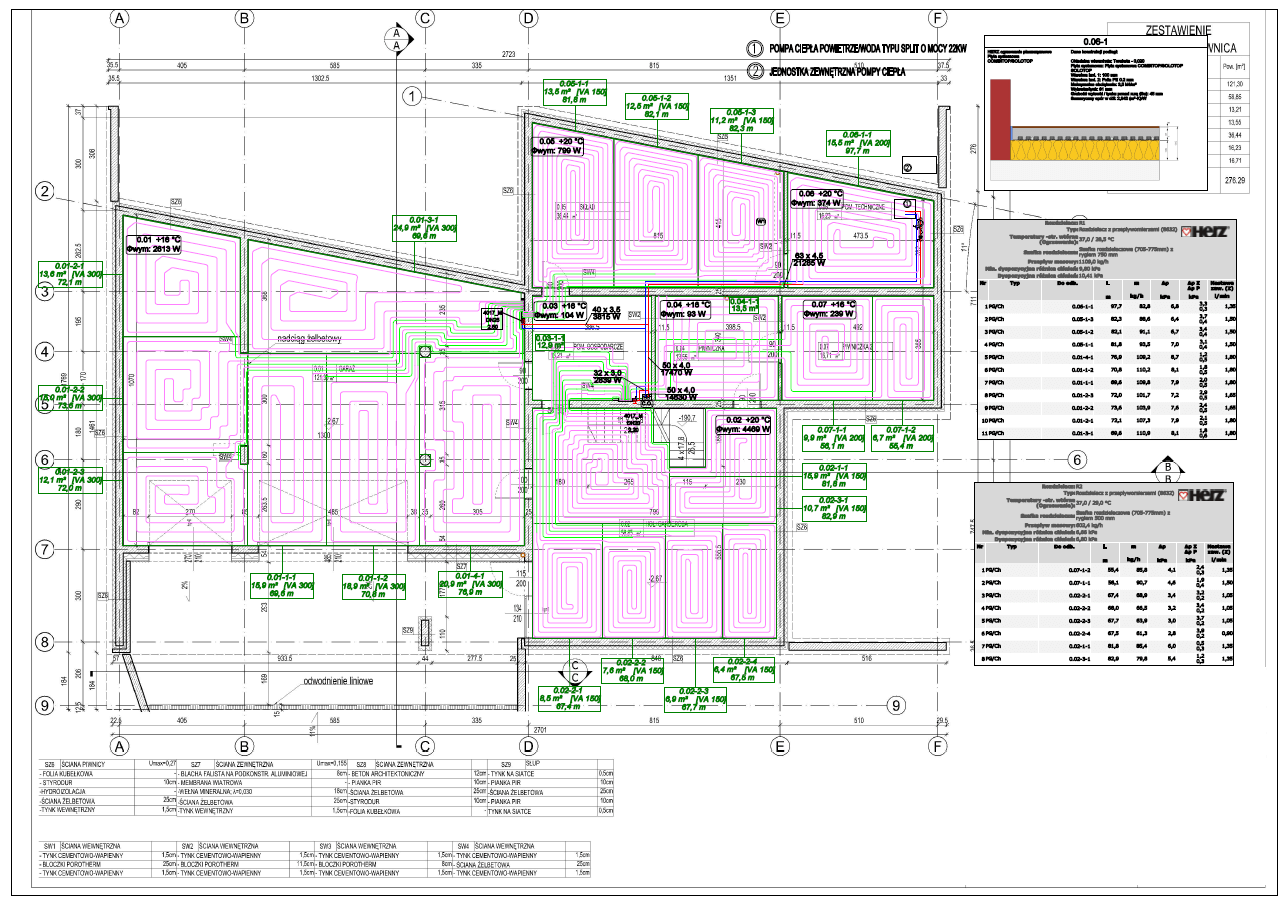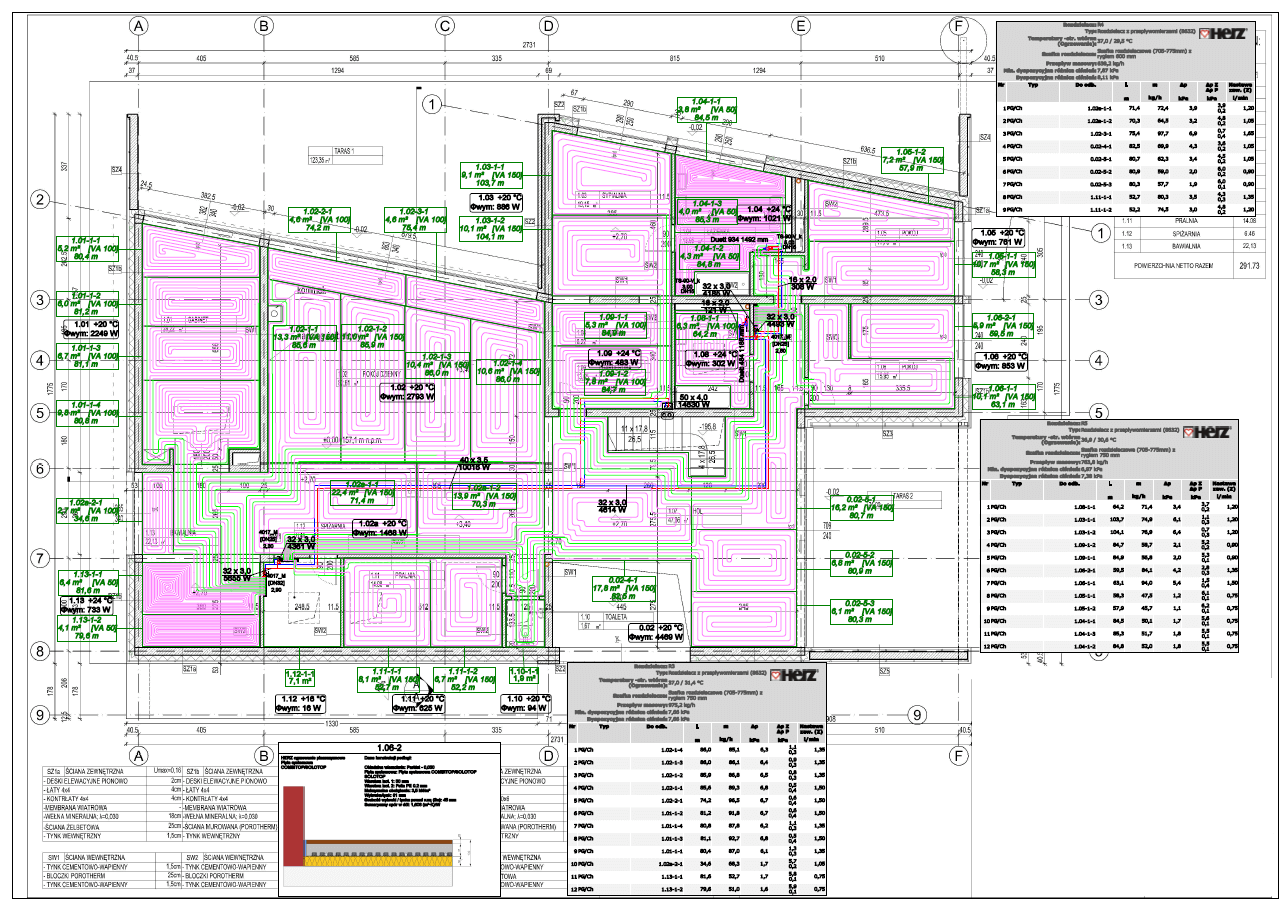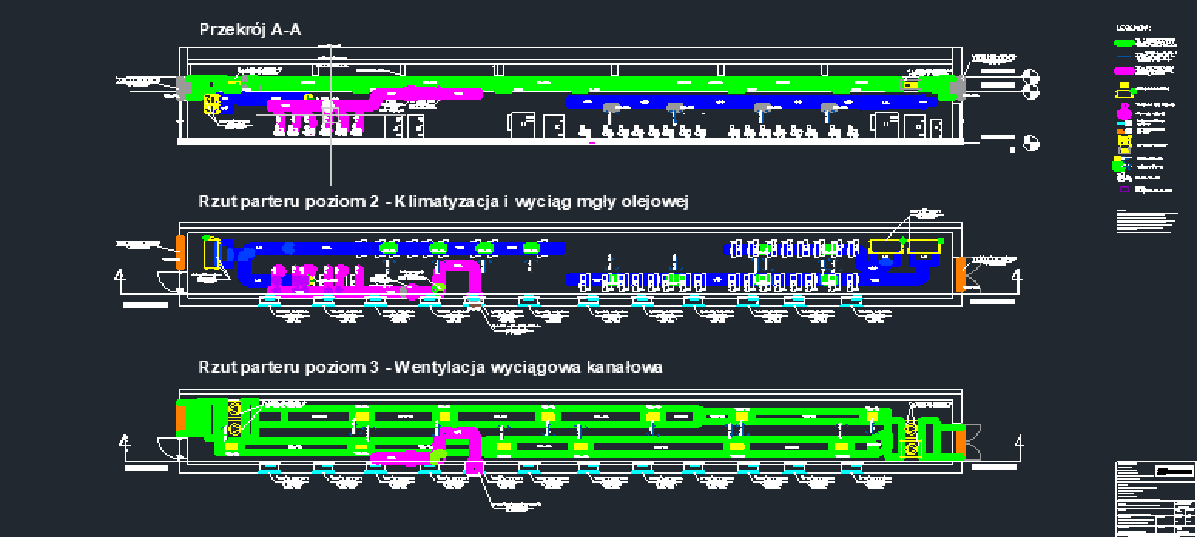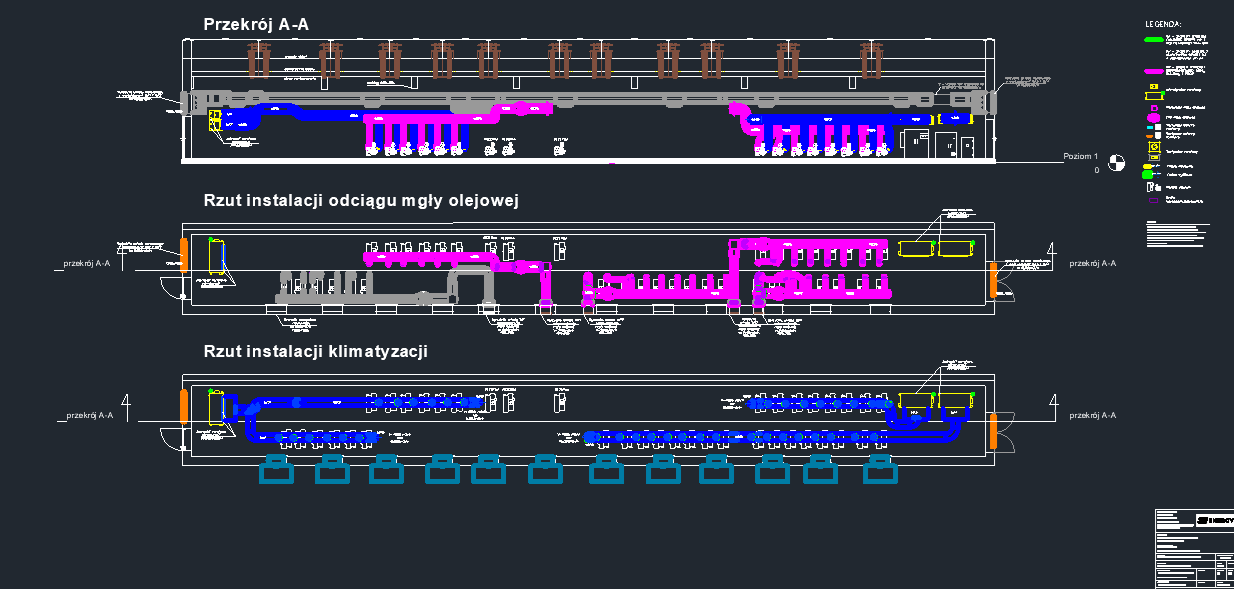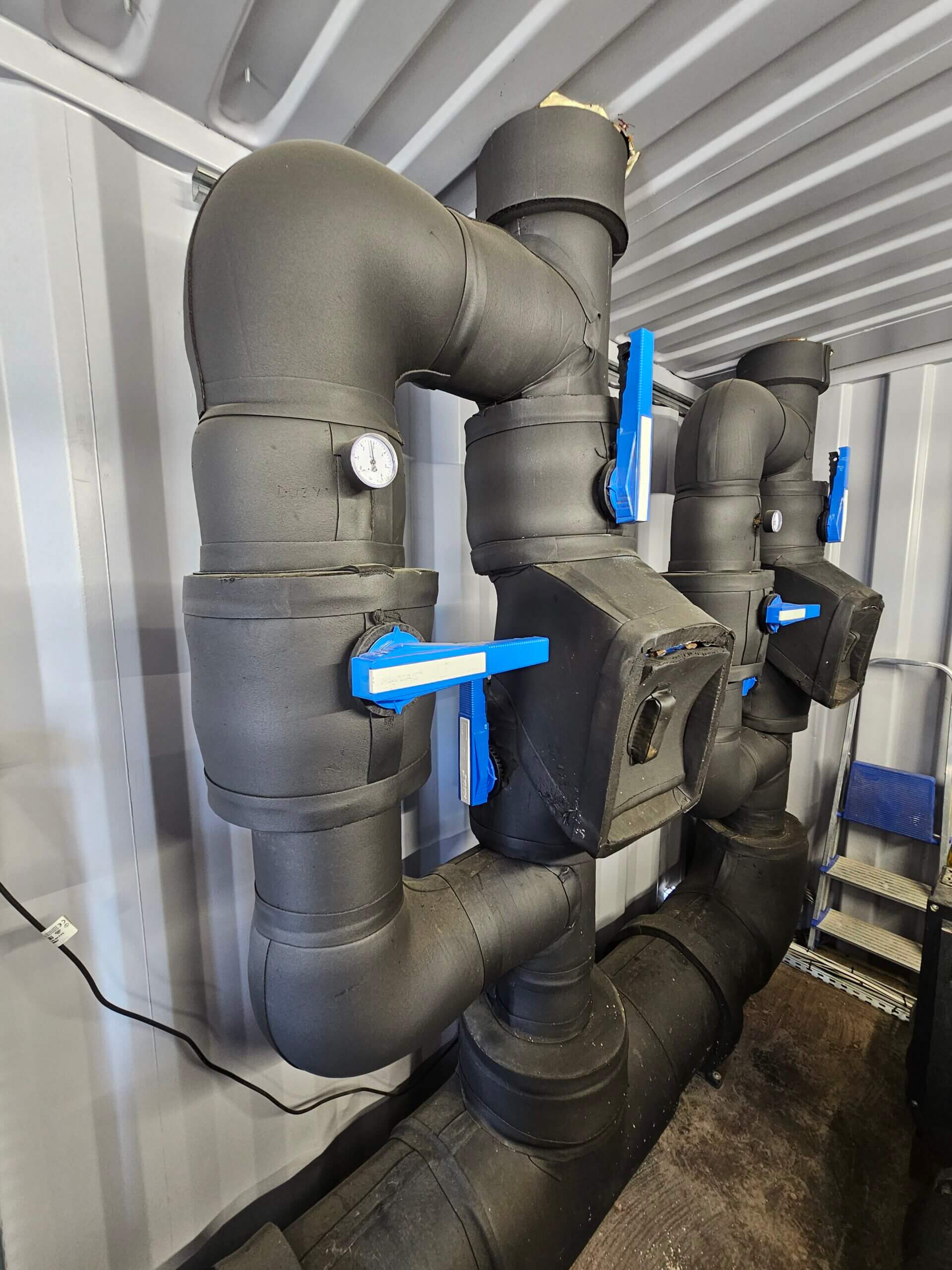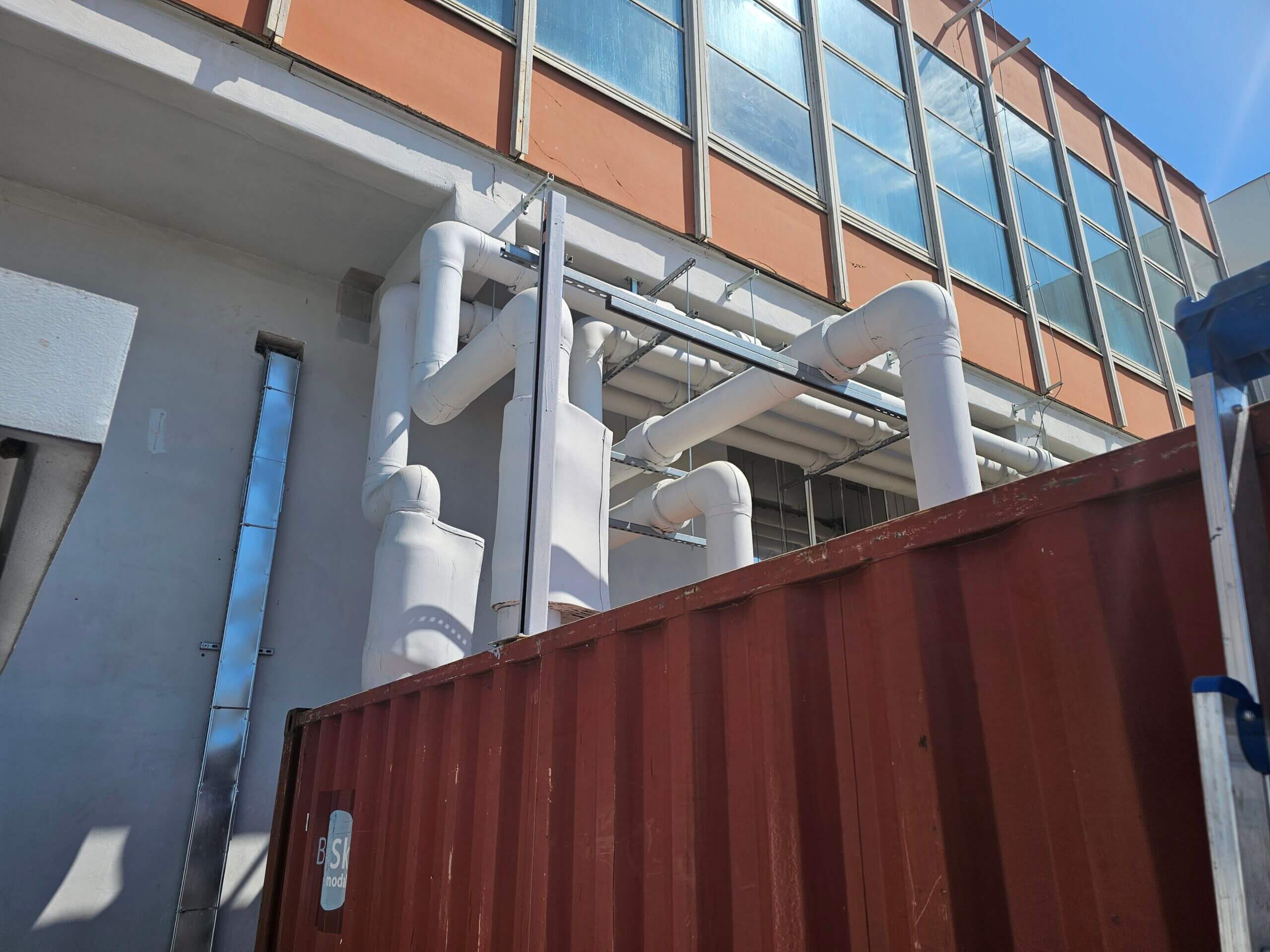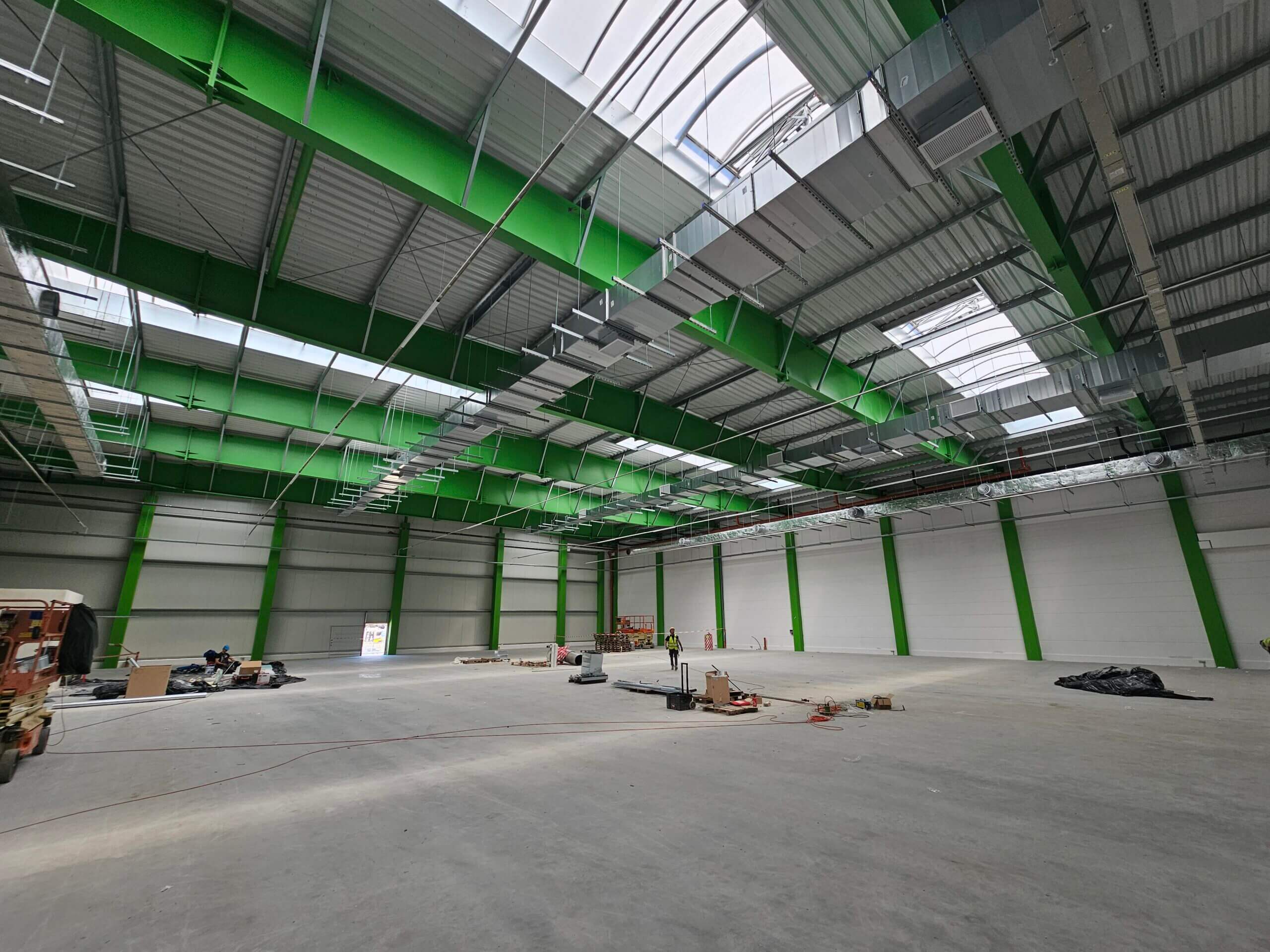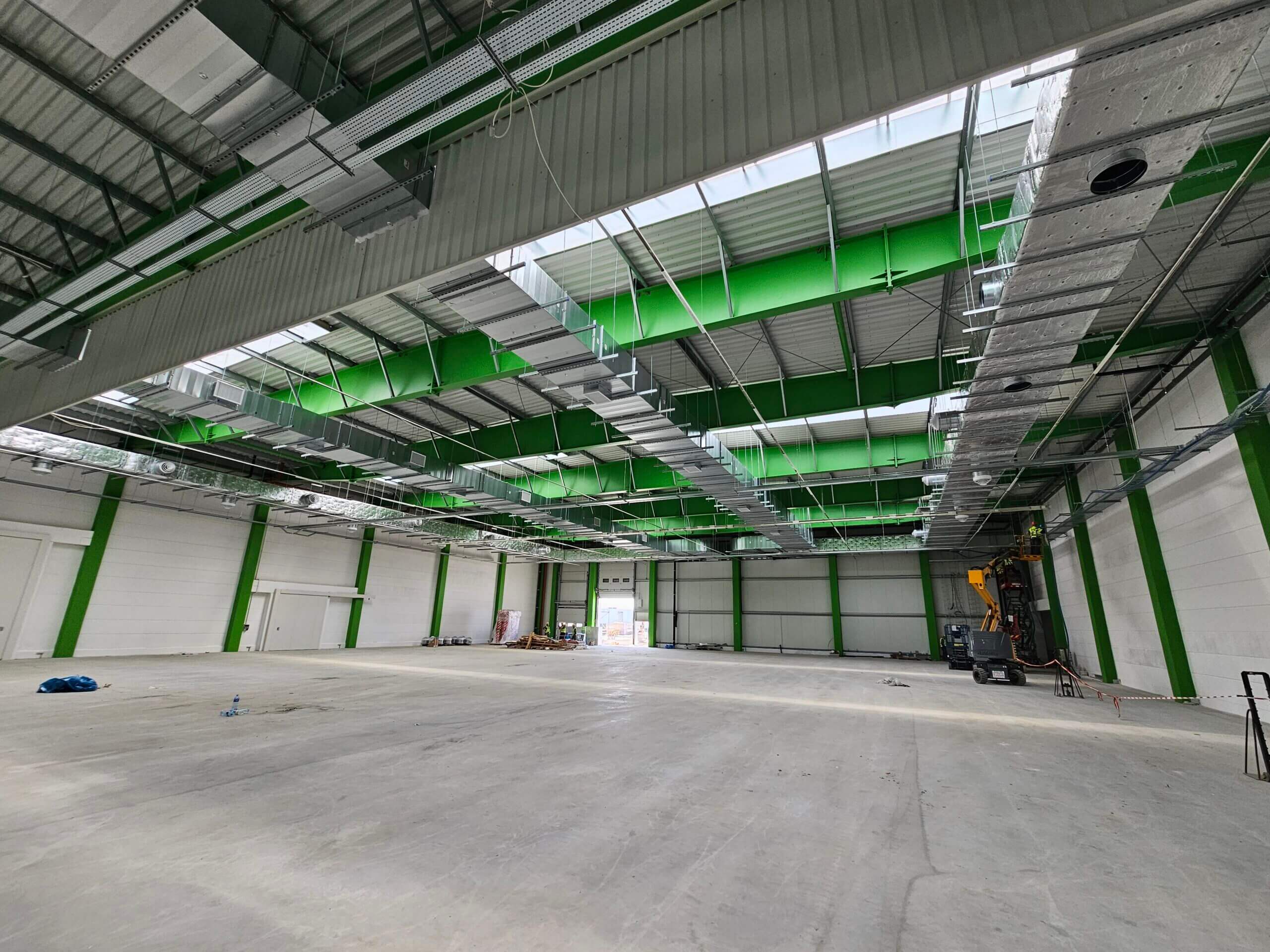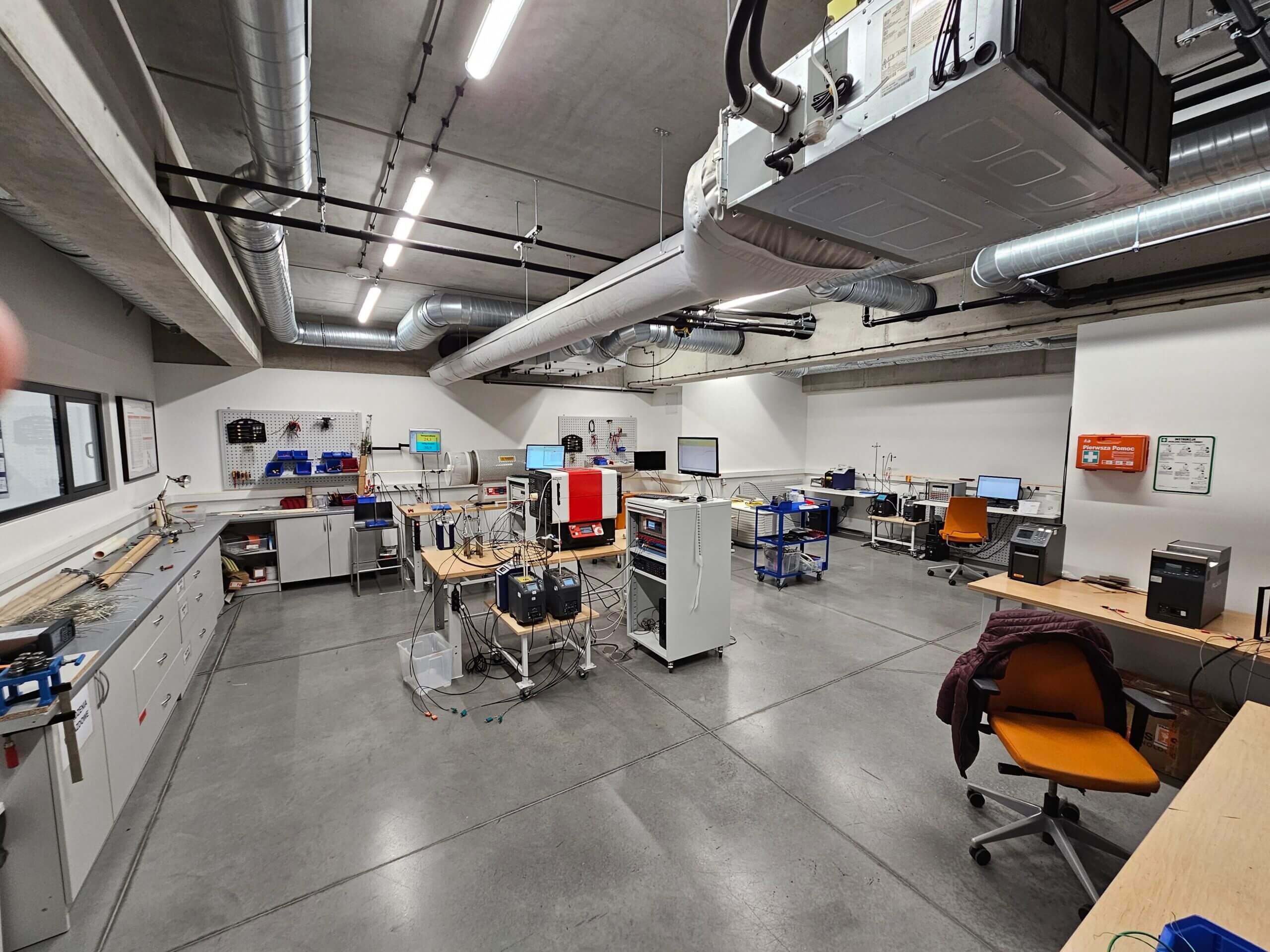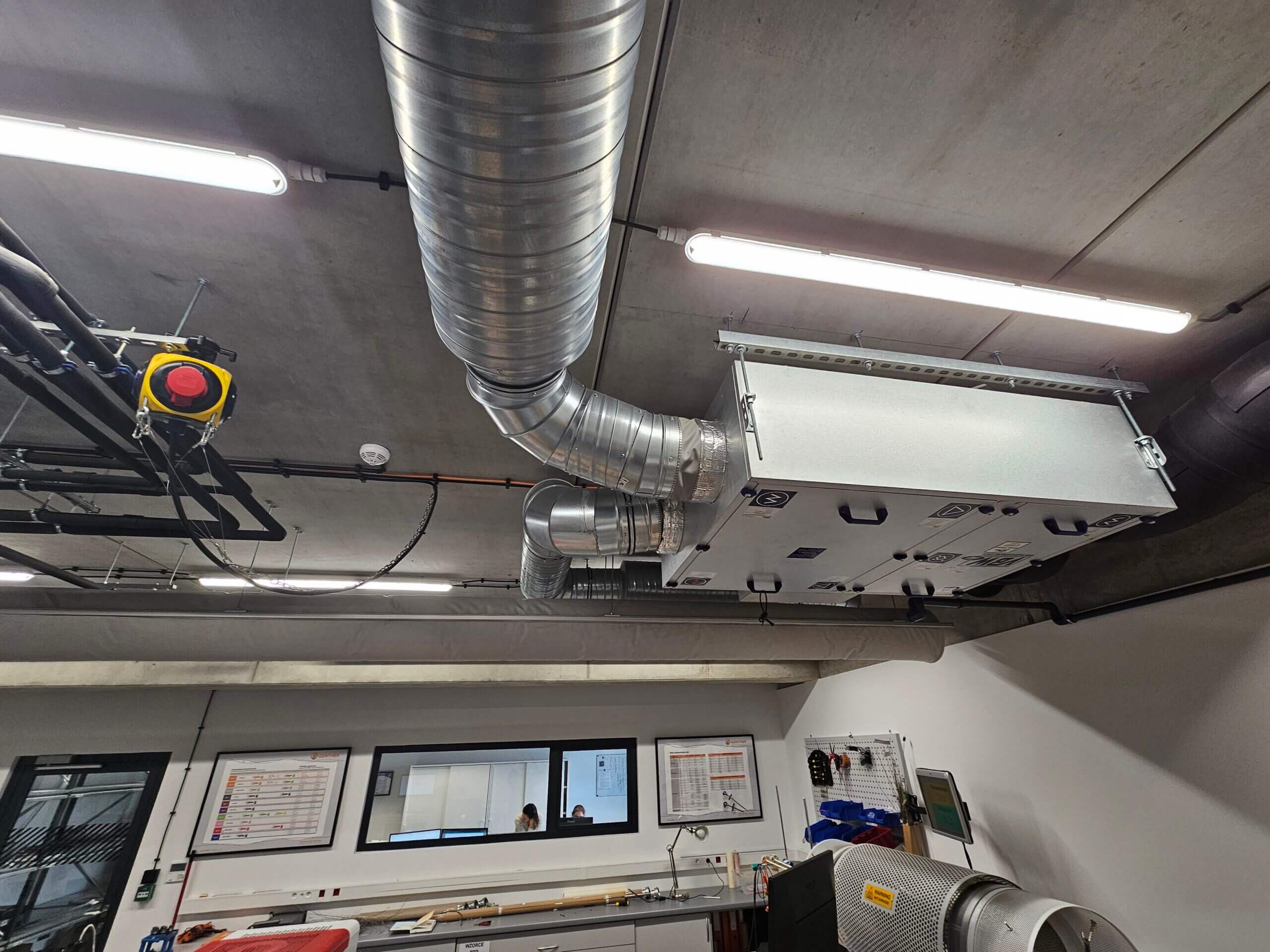HVAC
Efficient, Reliable, and Sustainable Climate Control for Your Building.
What is an HVAC System?
HVAC (Heating, Ventilation, and Air Conditioning) systems are essential for maintaining indoor comfort, air quality, and temperature control in both residential and commercial spaces. These systems work together to provide optimal heating, cooling, and ventilation, ensuring the indoor environment is comfortable, healthy, and energy-efficient. At 3D Energy Tech, we specialize in the design, installation, and optimization of HVAC systems that enhance comfort, reduce energy consumption, and promote sustainability for a wide range of applications.
How Do HVAC Systems Work?
HVAC systems operate by integrating multiple components that work together to control the environment inside a building. These components include:
1. Heating: HVAC systems provide heating through various methods such as boilers, furnaces, heat pumps, or electric heating. The heat generated is distributed throughout the building to maintain a comfortable indoor temperature, particularly during colder months.
2. Ventilation: Ventilation ensures the circulation of fresh air inside the building while removing stale air, pollutants, and moisture. This is achieved through ductwork, fans, and air filtration systems, which help maintain good indoor air quality (IAQ) and prevent issues like mold or poor air circulation.
3. Air Conditioning (Cooling): Air conditioning in HVAC systems uses refrigerants and evaporators to cool indoor spaces by absorbing heat and expelling it outside. Air conditioning is particularly important during warmer months to maintain comfort and prevent overheating.
An efficient HVAC system not only provides comfort but also reduces energy consumption by controlling the temperature and air quality while ensuring that heating and cooling needs are met with minimal energy waste.
Types of HVAC Systems
1. Split Systems
• How It Works: A split system consists of two main units: one for heating and one for cooling. The heating unit can be a furnace or heat pump, while the cooling unit is typically an air conditioner. These units are connected by ducts or refrigerant lines.
• Applications: Residential homes, small commercial buildings.
• Benefits: Cost-effective, reliable, and easy to install, providing both heating and cooling from a single system.
2. Packaged Systems
• How It Works: In a packaged HVAC system, both the heating and cooling components are housed in one unit, which is typically located on the roof or ground. The system is connected to the building through ductwork to distribute conditioned air.
• Applications: Large residential buildings, commercial spaces like retail stores or offices.
• Benefits: Saves space, ideal for buildings with limited indoor space for equipment, and can be more energy-efficient in certain applications.
3. Ductless Mini-Split Systems
• How It Works: Ductless systems consist of an outdoor unit connected to one or more indoor units through refrigerant lines. These units provide both heating and cooling without the need for ductwork.
• Applications: Small homes, apartments, individual rooms, or spaces where ductwork is impractical.
• Benefits: Flexible installation, energy-efficient, and ideal for retrofitting existing buildings.
4. Central HVAC Systems
• How It Works: Central HVAC systems typically use a central unit (like a furnace or heat pump) and ductwork to distribute heated or cooled air throughout the entire building. These systems can be more complex but offer consistent and efficient climate control.
• Applications: Large commercial buildings, office buildings, hospitals, educational institutions.
• Benefits: Provides uniform heating and cooling across large spaces, offers better air filtration, and can be more efficient for larger buildings.
5. Geothermal HVAC Systems
• How It Works: Geothermal systems use the earth’s natural heat to provide heating and cooling. A series of pipes (a ground loop) is buried underground, and a heat pump exchanges heat between the earth and the building.
• Applications: Residential homes, large commercial buildings, industrial facilities.
• Benefits: Highly energy-efficient, reduces utility costs, and has minimal environmental impact.
Benefits of HVAC Systems
• Energy Efficiency: Modern HVAC systems are designed to reduce energy consumption through advanced technology, smart controls, and energy-efficient components, leading to lower utility bills and better resource management.
• Improved Air Quality: HVAC systems equipped with advanced filtration systems remove dust, allergens, pollutants, and moisture, improving indoor air quality (IAQ) and providing a healthier environment for occupants.
• Cost Savings: By optimizing heating, cooling, and ventilation, HVAC systems help businesses and homeowners save on energy costs while enhancing the comfort and productivity of their indoor spaces.
• Comfort Control: HVAC systems offer precise control over temperature and humidity, ensuring optimal comfort for building occupants throughout the year.
• Sustainability: With more efficient systems and eco-friendly refrigerants, HVAC systems help businesses and homes reduce their environmental footprint and meet sustainability goals.
• Smart Technology Integration: Modern HVAC systems integrate with smart thermostats, IoT sensors, and automated systems, allowing for remote control and optimization based on real-time data and user preferences.
Applications of HVAC Systems
HVAC systems are used across various industries and applications to ensure optimal climate control:
• Residential Homes: Ensuring year-round comfort with efficient heating and cooling.
• Commercial Buildings: Offices, retail spaces, and hotels rely on HVAC systems to maintain consistent temperature and air quality for customer comfort.
• Industrial Facilities: HVAC systems are vital for controlling temperature and humidity in industrial plants and warehouses, ensuring product quality and worker comfort.
• Healthcare Facilities: Hospitals and medical centers require strict temperature control and air filtration to maintain sterile environments and ensure patient safety.
• Educational Institutions: Schools and universities need reliable HVAC systems to provide a comfortable learning environment for students and staff.
• Restaurants & Retail: Maintaining a comfortable atmosphere for customers while ensuring the system is energy-efficient and meets industry standards.
Why Choose 3D Energy Tech for Your HVAC Needs?
• Expert Design and Installation: Our team designs and installs custom HVAC systems tailored to your specific needs, ensuring maximum efficiency and comfort.
• Energy Efficiency Focus: We specialize in designing HVAC systems that optimize energy use, reduce operational costs, and help you meet sustainability goals.
• Comprehensive Services: From design and installation to maintenance and optimization, we offer a full range of HVAC services to ensure your system runs smoothly and efficiently.
• Smart Technology Integration: We integrate the latest smart technologies and IoT sensors to help you monitor and control your HVAC system remotely, further improving energy efficiency.
• Ongoing Maintenance and Support: We provide regular maintenance services to keep your HVAC system running at peak performance, extending its lifespan and minimizing downtime.
We utilize the most professional software available, including AutoCAD, Revit, Navisworks, and other advanced programs to calculate, design, and model the objects we work with.
Ready to Optimize Your HVAC System?
Ensure that your building operates at peak comfort and efficiency with a custom HVAC solution from 3D Energy Tech. Whether it’s residential, commercial, or industrial, we can design, install, and maintain an HVAC system that meets your specific needs and reduces your energy costs.

